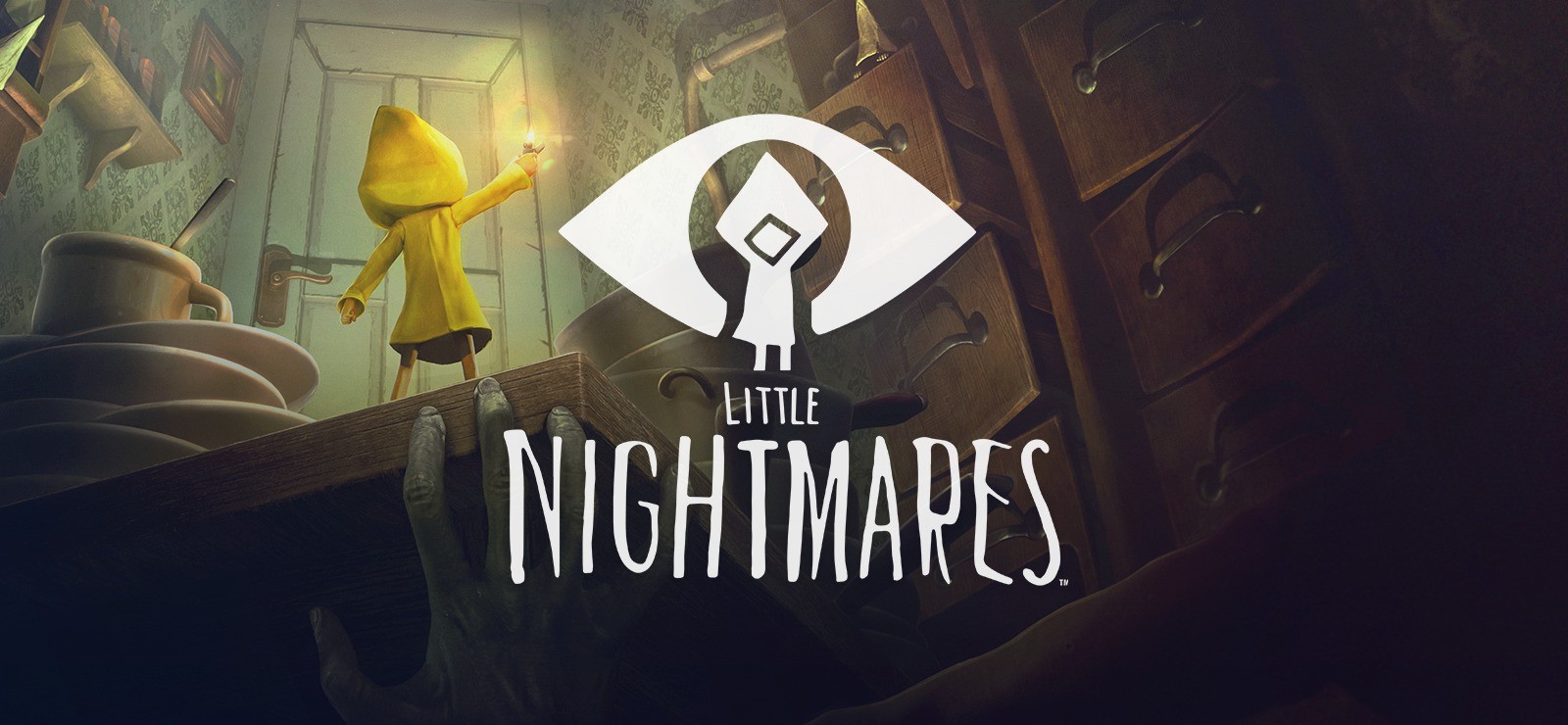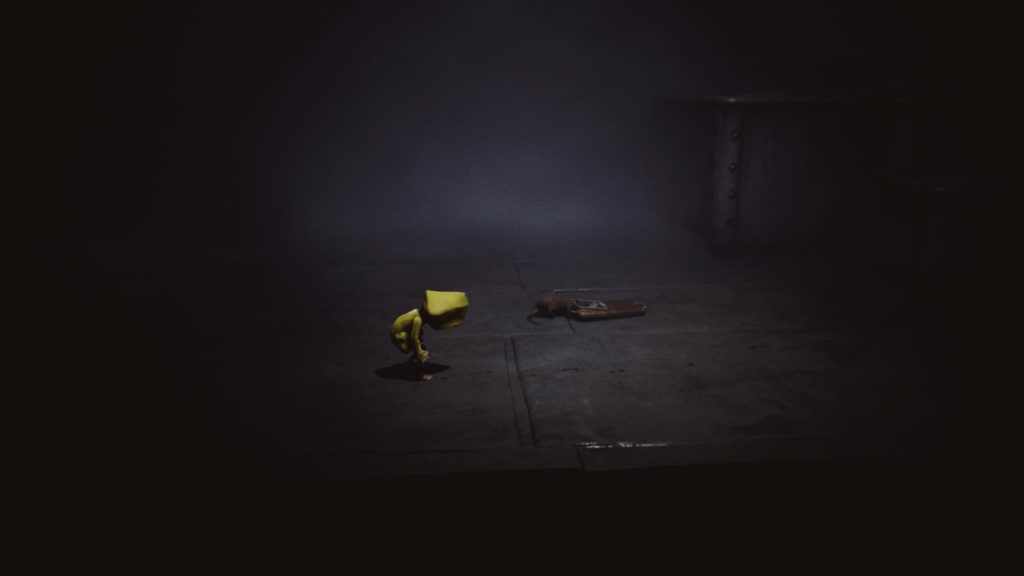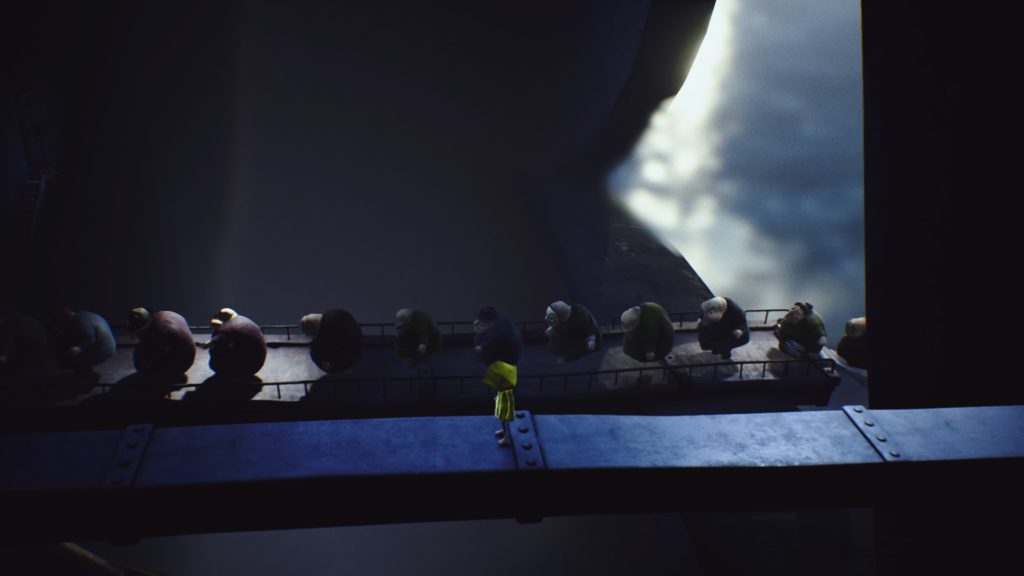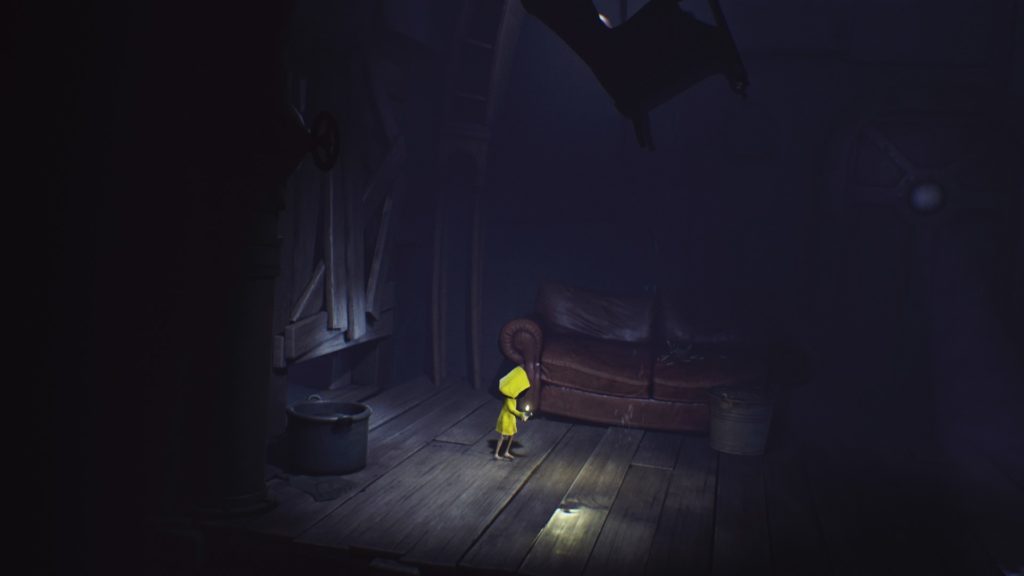
Article by Alyx Jones
Edited by Sam Hughes
Developer: Tarsier Studios
Audio Director & Composer: Tobias Lilja
Audio Designer: Christian Vasselbring with support from Christian Björklund
Reviewed on: PS4
Creepy puzzle-platformer Little Nightmares from Tarsier Studios was finally released this week after much anticipation. The game follows Six, a small girl in a yellow mackintosh, as she tries to escape an underwater prison called “The Maw”. We meet a myriad of obese and unnatural looking creatures, running this strange resort out in the middle of unknown seas, all hot on our toes.
Music
Upon opening the game, we are greeted with a music box/twinkly instrument, slowly playing with accordion drones behind and the occasional cut-up sung notes, that give a human but uncomfortable edge. Audio Director, Tobias Lilja has been with Tarsier Studios since 2011, bringing his creative darkness and mystery. Influences such as Kraftwerk definitely shine through via the use of synths throughout. This as well as the use of short samples of the human voice, blended with the onset of a wind instrument, reminds me very much of the creepy, intense work of composers like Cristobal Tapia de Veer (Utopia).
As the game progresses, we have to deal with our gnawing hunger and make difficult decisions to survive. One of these is our decreased mobility, where the only way to progress is to interact with a live rat, with its head caught in a trap. As we approach, there is sinister humming of a certain motif accompanied by throbbing drones. When we make the decision to kill and eat the rat, the lower drones clear from the mix and the motif is then played by a music box, in place of the creepy, nearby voices. The music offers levels of adaptivity, with drones in places guiding us where we need to go. An example of this is a level close to the end of the game, where a key is found after we smash a pot. However, if we go off track the drones fade out and the house is quiet with an absence of music, so we become drawn back to the music.

Sound Design
The sound design for Little Nightmares, by Christian Vasselbring, with support from Christian Björklund, really reminds me of Martin Stig Andersen‘s work on INSIDE. The two games have quite a few similarities in: game-play, narrative devices and sonic aesthetic, plus both are not quite horror, but very unsettling. The sonic world of The Maw is made up of floorboards creaking, the walls around us groaning and metal objects squeaking as we interact with the environment. The drones also reflect the world they inhabit. Whether they are considered soundscape or music, the audio all works together to create this “little nightmare”. In areas where we have to crouch and creep through an air vent system, an ominous wind blows through, creating an interesting atmosphere for an underwater resort.

There are many monsters, with exaggerated human features, for us to evade, who all breathe heavily. The game uses the hyper-real sound design technique of accentuating certain sounds to draw our attention. Obviously in real-life, you have to be very close to someone to hear their breath. Although we have to sneak past these creatures at an uncomfortable distance, we wouldn’t actually be able to hear them breathing most of the time. It works really well in building tension and making the threat feel too close for comfort. The game-pad pulses in time with the floor vibrating, as heavier opponents waddle by. In the kitchens, when the horrendously overweight chef sees us, they let out a screech as they struggle where can i buy levitra online to find us. If we are out of reach, but visible, the chef reaches its chubby arms up to try and grab us from atop a bookcase, while the sounds of it chocking and gagging under its own weight and overexertion fill the air. As we get further into the game, our enemies become increasingly less mobile and over weight, and the sound design is just so well done, and so convincing. The unpleasant experience of listening to a gluttonous, obese creature hurriedly eating, gobbling down food, snuffling and struggling to breathe under their own weight is as awful as it sounds!

Along the way, we are confronted by a fair few unpleasantries. There is a thick black sludge we get stuck in, that cracks and slugs emerge around it that essentially eat our face. They have a moist, and slimy sound that would make anyone’s skin crawl. Little Nightmares also makes use of “bodily” noises that accentuate certain frequencies. For example, low thuds and higher cracks/crunches, that helps us to feel everything through our ears, in the low light passages of The Maw. Occasionally, Six knocks an object that creates a loud noise, such as pots smashing, or a crate falling, while the rest of the scene goes quiet as we listen for any response. When we are ravenous, our tummy grumbles overshadow any other sounds in that moment. It’s a low churning liquid sound, emphasising our hunger, often accompanied by squeaks of rats or other creatures we could eat.
In conclusion, this eerie, below-the-sea-platformer, is a gruesome feat in sound design and the atmospheric soundtrack creates a tense and macabre mood that accompanies. It won’t make you jump out of your seat too much, so dive in to the spooky world of “The Maw” and uncover the secrets it holds!
LINKS
Official
We hope you enjoyed Alyx’s review, check out others in our Reviews section. Don’t forget to sign up to our Monthly Newsletter to make sure you don’t miss out on our reviews and interviews.
We’re also running a Patreon campaign to make sure we can keep bringing you regular, high quality content if you’re feeling generous! Thanks for even sharing!
The Sound Architect




